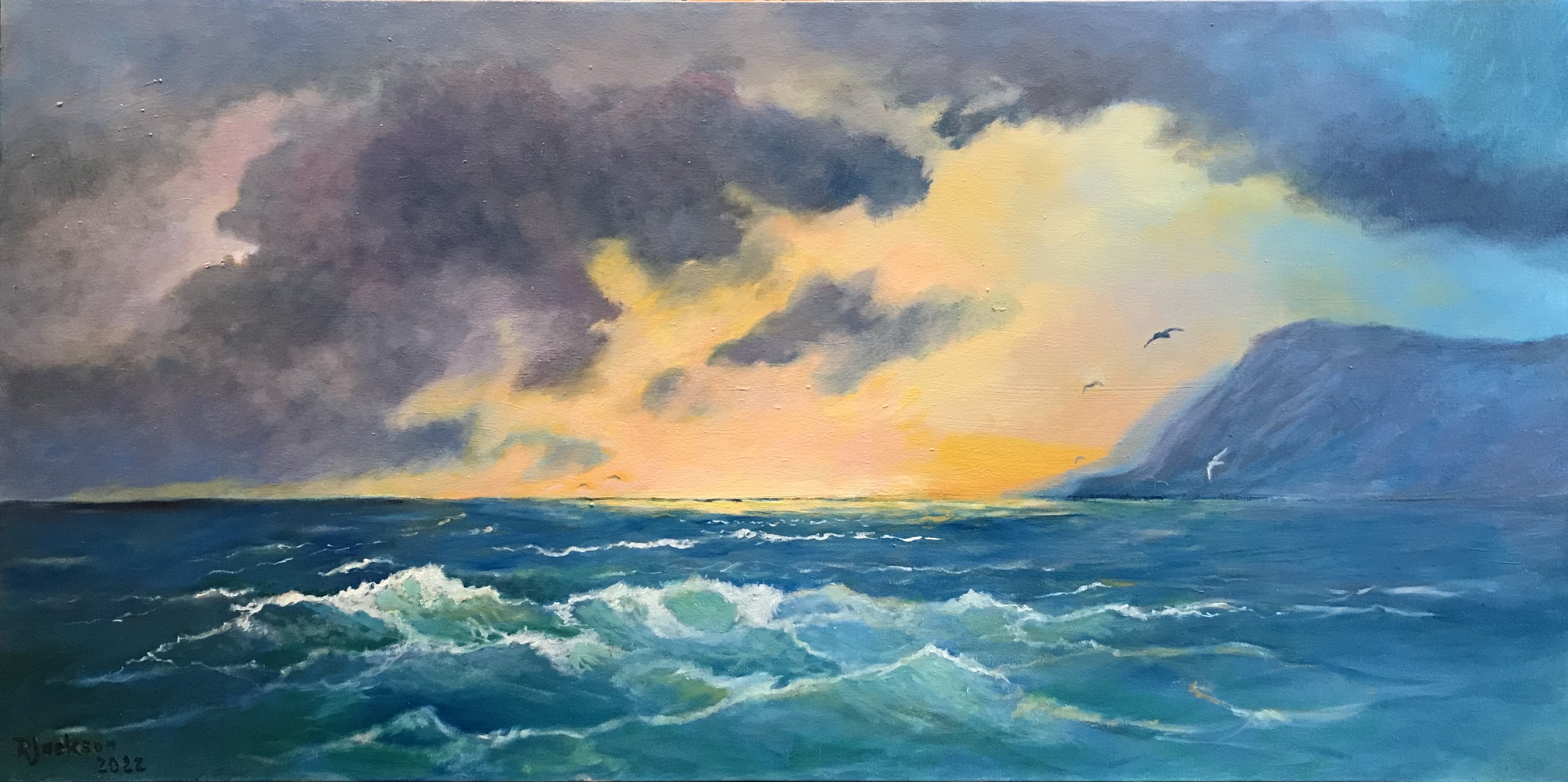
We have been taught from an early age that oil and water do not mix . . . and then along comes water mixable oil paint. How did that happen and more importantly, why?
Why: Paint manufacturers wanted to create a product that gives the luminous result of oil paint but without the fumes, handling and environmental issues associated with turpentine and solvents used for thinning and cleaning.
How: An emulsifier was added to the oil paint to allow it to be mixed thinned with water.
It's important to note that although this paint has been chemically modified to accept water, there is a limit to how much water can be added so it should not be named water miscible or water soluble, terms that imply the paint can be thoroughly mixed with water. Instead of using water for mixing and thinning, why not try to use special medium that has been created for use with water mixable oil?
Other notes:
I find that the water mixable oil does not have quite the same consistency as traditional oil paint.
Water mixable oil dries a little darker if water is used for thinning or mixing but not quite as much is modified medium or linseed oil is used.
Because both water mixable oil and traditional oil are oil paints they can be used on the same painting - but - you can't use water.
Hope this helps! Enjoy painting.
It is believed that oil painting began in the 5th or 6th century but it didn't gain popularity until the 15th century. Some scholars credit Jan van Eyck as being the inventor of oil painting, however, this remains open to much discussion. What van Eyck really did for oil painting was his glazing technique. After all that time, oil painting is still the medium of choice for many artists because the workability and results are unmatched by any other medium.
What is oil paint and what's so great about it? It is pigment suspended in a drying oil, most commonly used is linseed oil which is derived from flax seed, obviously a natural product. What's great about it that it is very forgiving, it dries slowly which means it remains workable for a long time. Other artists may not agree with my methods but when I paint with oils, I can take a break or stop for the night, walk away from my palette, leave my brushes, then come back to it the next day (or the day after that), pick up where I left off and the painting, the palette and the brushes are just the way I left them. (Now that's something you can't do with acrylics!)
What prevents many people away from giving oil painting a try is the myth that you have to use smelly, toxic turpentine or mineral spirits to thin paints and clean brushes. And then there's the problem of storing and disposing of the cleaning rags.
For thinning, I use linseed oil or walnut oil. There are other drying oils but these are what I use for the right combination of blending and drying time.
I try to avoid naming products but for cleaning brushes I use "The Masters Brush Cleaner and Preserver" and if I'm out of that, I use any good quality liquid dish washing detergent. It is worth saying that no matter what you use, my cleaning solutions or turpentine or mineral spirits, brushes will never clean up to look as good as they did when you saw them in the store. Pigments have different tendencies for permanence so even though you knock yourself out cleaning, there is still colour on the bristles but don't be alarmed, the leftover colours will not bleed into your next project.
So, don't be afraid to try oil. You just might like it.